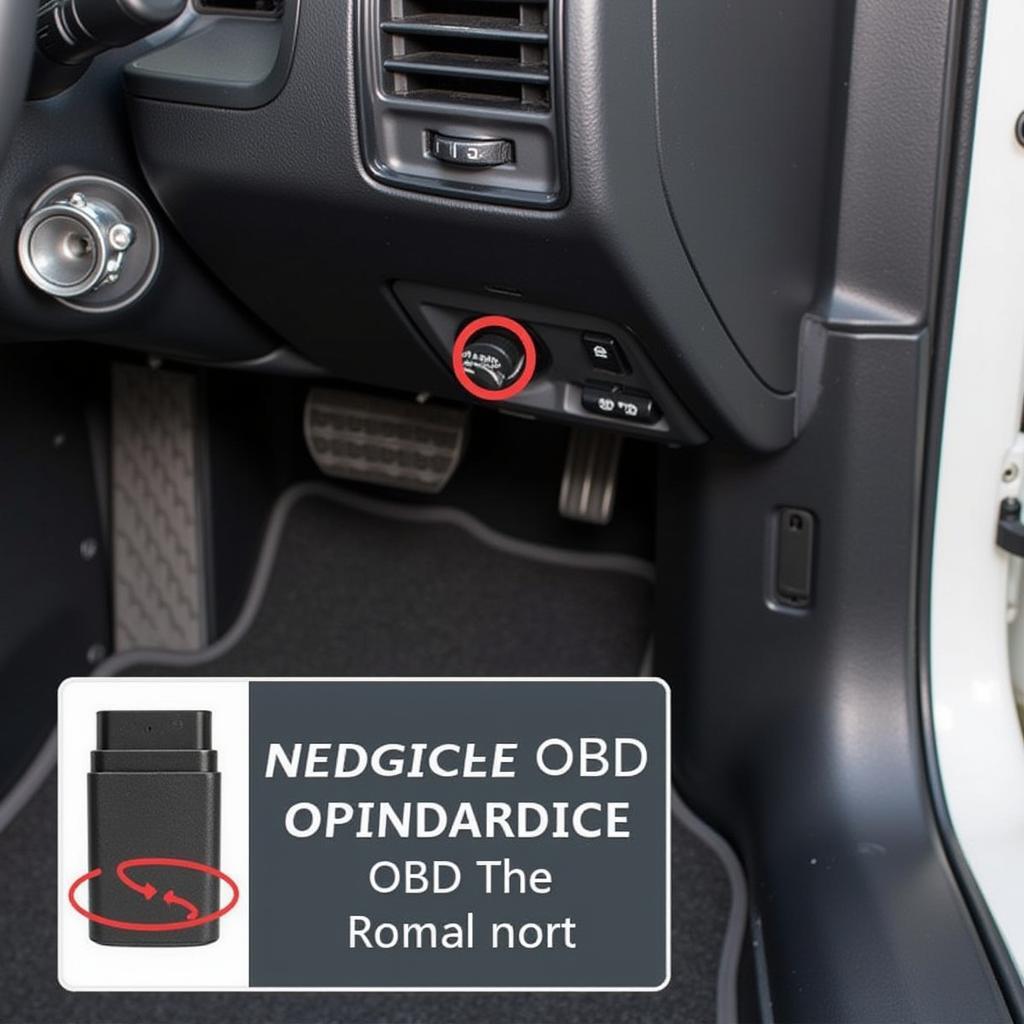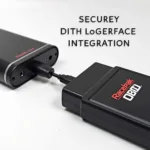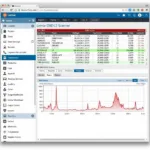The OBD2, or On-Board Diagnostics, system has become a staple in vehicles since its introduction in the mid-1990s. It allows mechanics and car owners alike to gain insight into the inner workings of their vehicles, pinpointing issues and ensuring everything runs smoothly. But amidst the technical jargon and widespread use, a common question arises: Is OBD2 federally regulated?
The answer, in short, is yes. The Environmental Protection Agency (EPA) mandates OBD2 systems in all cars and light trucks sold in the United States since 1996. This regulation stemmed from the Clean Air Act, aiming to reduce harmful emissions and improve air quality.
 OBD2 Port Location
OBD2 Port Location
The EPA’s Role in OBD2 Regulation
The EPA doesn’t dictate the specific design or technology behind OBD2 systems. Instead, they set standards for:
- Monitoring Capabilities: OBD2 systems must monitor specific components related to emissions, including the catalytic converter, oxygen sensors, and evaporative emissions system.
- Fault Codes: A standardized list of Diagnostic Trouble Codes (DTCs) ensures that any mechanic can understand the information provided by the system.
- Data Access: The EPA mandates that vehicle information through the OBD2 port be accessible to everyone, not just dealerships. This provision paved the way for the aftermarket scanner market and empowered car owners with more control over their vehicles.
Beyond Emissions: OBD2’s Expanding Scope
While the EPA’s primary focus remains on emissions control, the scope of OBD2 has expanded over the years. Modern OBD2 systems monitor a wider range of vehicle components and functions, including:
- Engine Performance: Monitoring parameters like RPM, speed, and throttle position.
- Transmission: Detecting issues with gear shifting, fluid pressure, and sensor readings.
- Safety Systems: Accessing data from airbags, ABS, and other critical safety features.
The Implications of Federal Regulation
The federal regulation of OBD2 systems has significant implications for both car owners and the automotive industry:
- Standardization: It ensures uniformity across different car makes and models, making diagnostics and repairs easier and more efficient.
- Improved Air Quality: By mandating emissions monitoring and control, the EPA aims to reduce air pollution and improve public health.
- Consumer Empowerment: Open access to vehicle data empowers car owners to take a more proactive role in maintenance and repairs.
- Innovation and Competition: Standardized regulations foster innovation and competition in the aftermarket scanner and diagnostic tools market.
OBD2 and You: Understanding the Impact
The next time you see that mysterious port under your dashboard, remember it’s not just a technical enigma. It’s a federally mandated system playing a crucial role in emissions control, vehicle maintenance, and consumer empowerment. Whether you’re a seasoned mechanic or a car enthusiast, understanding OBD2 and its regulations provides valuable insights into the inner workings of your vehicle and the broader automotive landscape.
FAQs about OBD2 Regulation
1. Are older cars required to have OBD2?
No, only cars and light trucks sold in the United States from 1996 onwards are federally mandated to have OBD2 systems.
2. Can I use any OBD2 scanner with my car?
While the port itself is standardized, different scanners offer varying levels of functionality and compatibility. It’s essential to choose a scanner that suits your specific needs and vehicle model.
3. Can I turn off the check engine light with an OBD2 scanner?
Yes, you can use an OBD2 scanner to clear the check engine light after addressing the underlying issue. However, it’s crucial to diagnose and fix the problem rather than simply erasing the code.
4. Can a faulty OBD2 port cause my car to fail an emissions test?
Yes, a malfunctioning OBD2 port can prevent emissions testing equipment from communicating with your vehicle’s system, leading to a failed test.
5. Do I need professional training to use an OBD2 scanner effectively?
While basic code reading can be straightforward, understanding the intricacies of diagnostics and repairs often requires specialized knowledge.
Still have questions?
Contact us via WhatsApp: +1(641)206-8880 or Email: [email protected]. Our team is available 24/7 to assist you.
Explore more helpful articles and resources on OBD2 scanners and vehicle diagnostics on our website.

